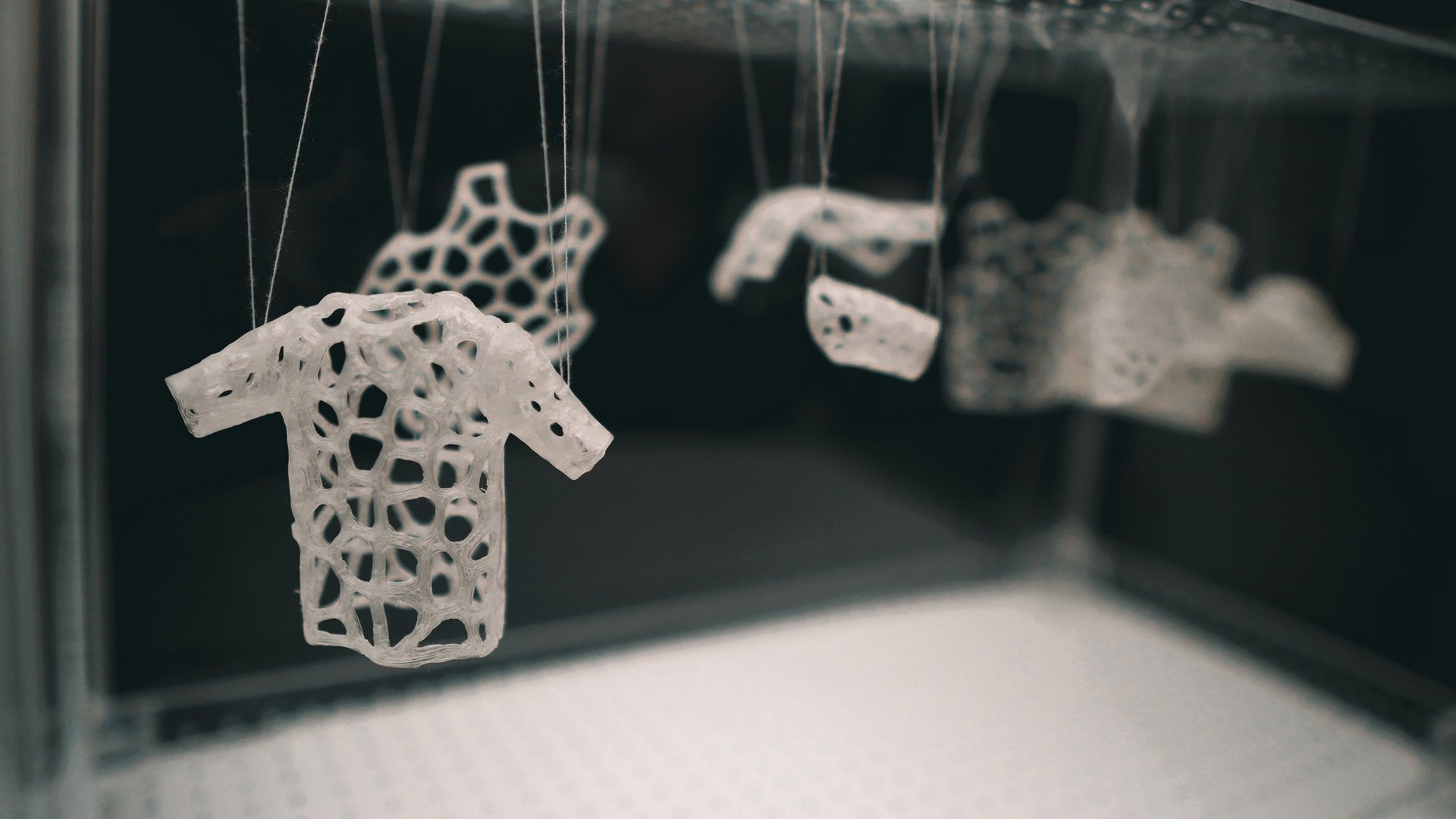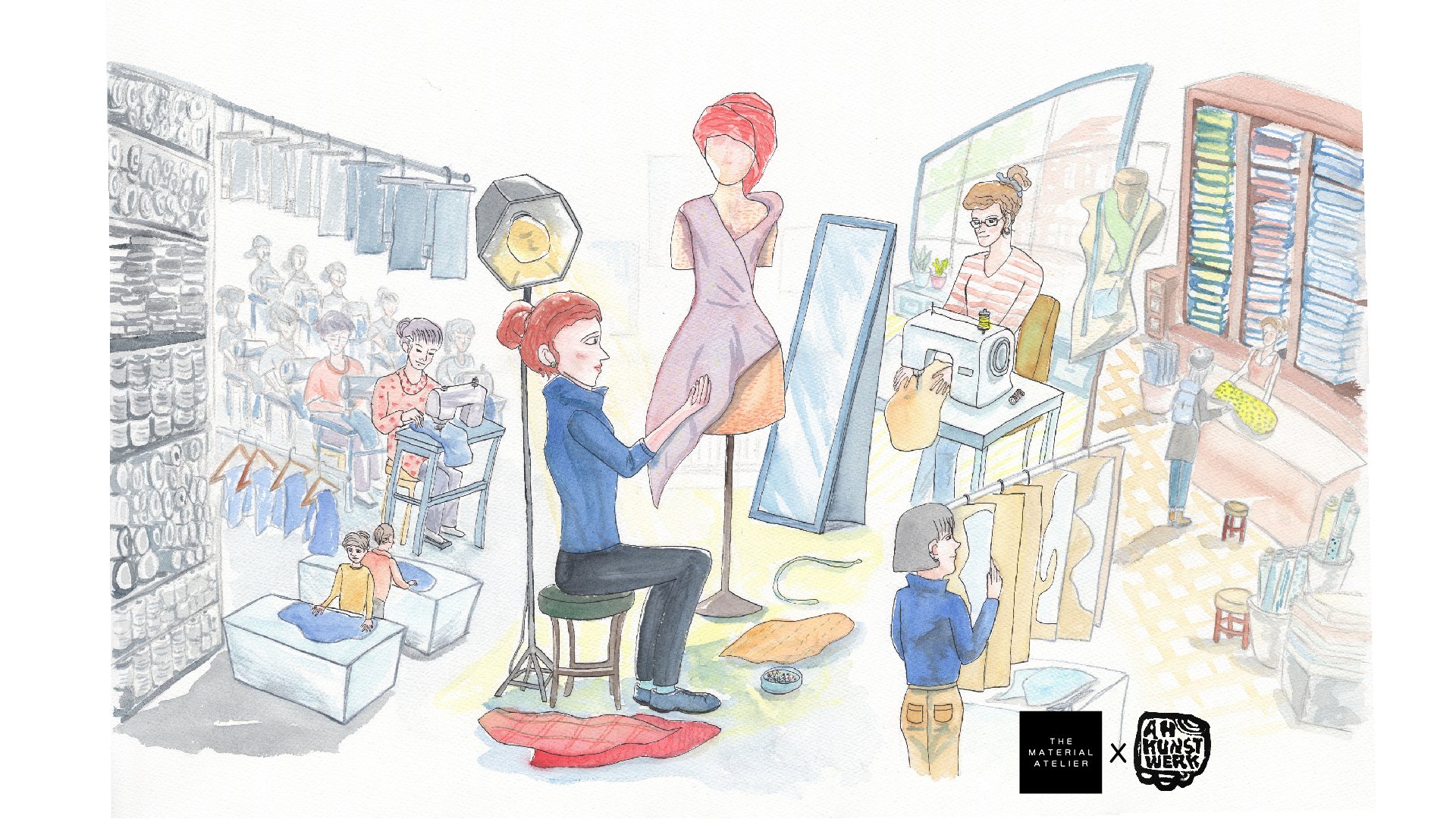MY RELATIONSHIP WITH THE FASHION - TEXTILE INDUSTRY
Painting : Home Coming
Memories of Garment Worker’s journey in Indonesia
Painting by Alison Hui in Collaboration with The Material Atelier - 2024
THE CONNECTION OF FASHION INDUSTRY TO ASIA
I'm documenting my personal insights into the Asian fashion industry. In Asia, where the majority of garments are produced, there's an ongoing debate about fostering sustainable practices in an industry dominated by the Global North's push for slow fashion.The complexity of addressing the fashion industry's environmental impact defies simple solutions. Various interconnected factors contribute to the current state of affairs.Calls for Slow Fashion often originate from privileged individuals who can afford such changes. However, it's crucial to acknowledge the broader spectrum of consumers who rely on affordable clothing due to social or financial pressures.Attempts to slow down fashion production by vilifying manufacturing practices inadvertently create a dichotomy between the Global North and Global South.Reflecting on my own professional journey within the industry, I've encountered numerous individuals whose livelihoods depend on the modest incomes provided by factory work. For them, this income is not merely a means of survival but also a gateway to education for their children, offering hope for a better future.Reducing mass manufacturing orders may lead to fewer large-scale factories, which often have the resources to uphold ethical standards. Conversely, the outsourcing of production to smaller home or cottage factories risks compromising safety and labor practices.In our efforts to meet demands for lower costs and accommodate the principles of slow fashion, we inadvertently hinder the industrial progress of the Global South. This deprives these regions of opportunities to ascend the socioeconomic ladder through the development of their fashion and textile industries.Painting : Creative Flow
Roots of Fashion Equality
Painting by Alison Hui in Collaboration with The Material Atelier - 2024
The fashion industry often prides itself on its diversity and its role in amplifying the voices of marginalized communities, including LGBTQ+ individuals and people of color. However, despite these claims, it's undeniable that the industry still struggles with ethical and sustainable practices.
In the relentless pursuit of becoming fashion icons, our egos often unconsciously divide us. This inherent inequality troubles me deeply. Whether it's an exceptionally skilled seamstress in the Global South or a well-known designer from t he Global North creating their own garments, their value should not be determined by the differences in their opportunities. Both individuals deserve equal respect and recognition for their talents and contributions.An inspiring example of this equality in action is Valentino's decision to have seamstresses walk down the runway during their 2024 show—a powerful tribute to the often overlooked artisans who bring designs to life.Addressing and acknowledging this fundamental issue of equality is essential for the fashion industry to progress towards becoming more ethical and sustainable. It requires a shift in mindset, where respect for human skill and dignity forms the foundation of how we value individuals within the industry.EQUALITY IN FASHION A MYTH
Painting : Natural Treasure
The Journey Of Material and Garments
Painting by Alison Hui in Collaboration with The Material Atelier - 2024
A MATERIAL CONSCIOUS WORLD
The fashion industry wields significant influence globally, often introducing non-conventional materials to the world and making them accessible to a wide audience. However, a longstanding tendency to gatekeep knowledge and prioritize aesthetic vision and marketing desires has had a detrimental impact on sustainability and ethical practices within the industry.Younger generations of conscious consumers are increasingly aware of the importance of sustainable materials and practices. Yet, they often find themselves on a treasure hunt for information and knowledge that should have been readily provided by the companies producing these materials.It's imperative for the fashion industry to recognize that its responsibility extends beyond pleasing investors. As leaders and educators to future generations, fashion companies have a duty to provide free and accessible knowledge about materials and their impact on the environment and society.By fostering transparency and sharing information openly, the fashion industry can empower consumers to make informed choices and drive positive change towards a more conscious and sustainable future. Only through collaboration and education can we truly transform the industry for the better.THE CHALLENGE
How can we cultivate an industry that prioritizes human welfare, ensures equality in recognition and compensation, and provides unrestricted access to material knowledge?Can we reduce the reliance of manufacturing in Global South, yet protect them in enabling job opportunity within the same industry ?Can we increase the opportunities in manufacturing in Global North, yet providing value to their work?
Can we learn from other industries that exist around the world and have always been an affordable commodity ? Innovating different manufacturing methods isn't just about changing how things are made; it's about revolutionizing an entire industry.
The Material Atelier - 2024






